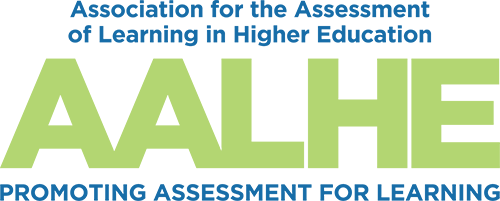- Home
- About AALHE
- Board of Directors
- Committees
- Guiding Documents
- Legal Information
- Organizational Chart
- Our Institutional Partners
- Membership Benefits
- Member Spotlight
- Contact Us
- Member Home
- Symposium
- Annual Conference
- Resources
- Publications
- Donate
EMERGING DIALOGUES IN ASSESSMENTAn Assessment Director’s Dilemma: How to Get Assessment Work from People Who Do Not Report to Us
February 12, 2020 Cynthia Tweedell, Ph.D.Professionals working in institutional effectiveness go by many titles: Assessment Coordinator, Director of Learning Outcomes Assessment, Assistant Provost for Institutional Effectiveness, etc. We probably don’t have a large staff but are responsible for coordinating assessment reports, assessment testing, accreditation reporting, and a wide variety of other duties. We may not be in senior administration, but to do our jobs, we must gain cooperation from people in faculty, student development, institutional technology, admissions, advising, and many other departments. Why should they take time away from the press of their regular duties to meet with us, collect data, get us a report, or serve on a committee? What’s in it for them? How do we encourage people to engage in assessment when they do not directly report to us? I recently posted this question on the Association of Higher Education Effectiveness listserve (ahee.org). Here are some of the responses:
These responses show an overall need to build relationships and show that we in institutional effectiveness have their interests at heart. It seems we need to do a good job of impression management to gain the trust of the people from whom we are making requests. People must trust that when we make a request, we have a good reason for doing so. In order to get them to comply, we must build a relationship and demonstrate our worth as their partner. Otherwise, they may see us as adding to the bureaucratic burden of yet another request that interferes with their “real work” at the institution. Attempting to coerce people to write assessment reports against their will is never a good idea. If you perceive people are avoiding you out of fear of yet another request for data, you might rethink your impression management. By creating a good collegial atmosphere and having a highly professional demeanor, people will trust that when you make a request, it is legitimate. When people perceive that you speak from a place of service and support, they are much more likely to respond positively. It’s like your mamma said: "You catch more flies with honey than with vinegar." |


